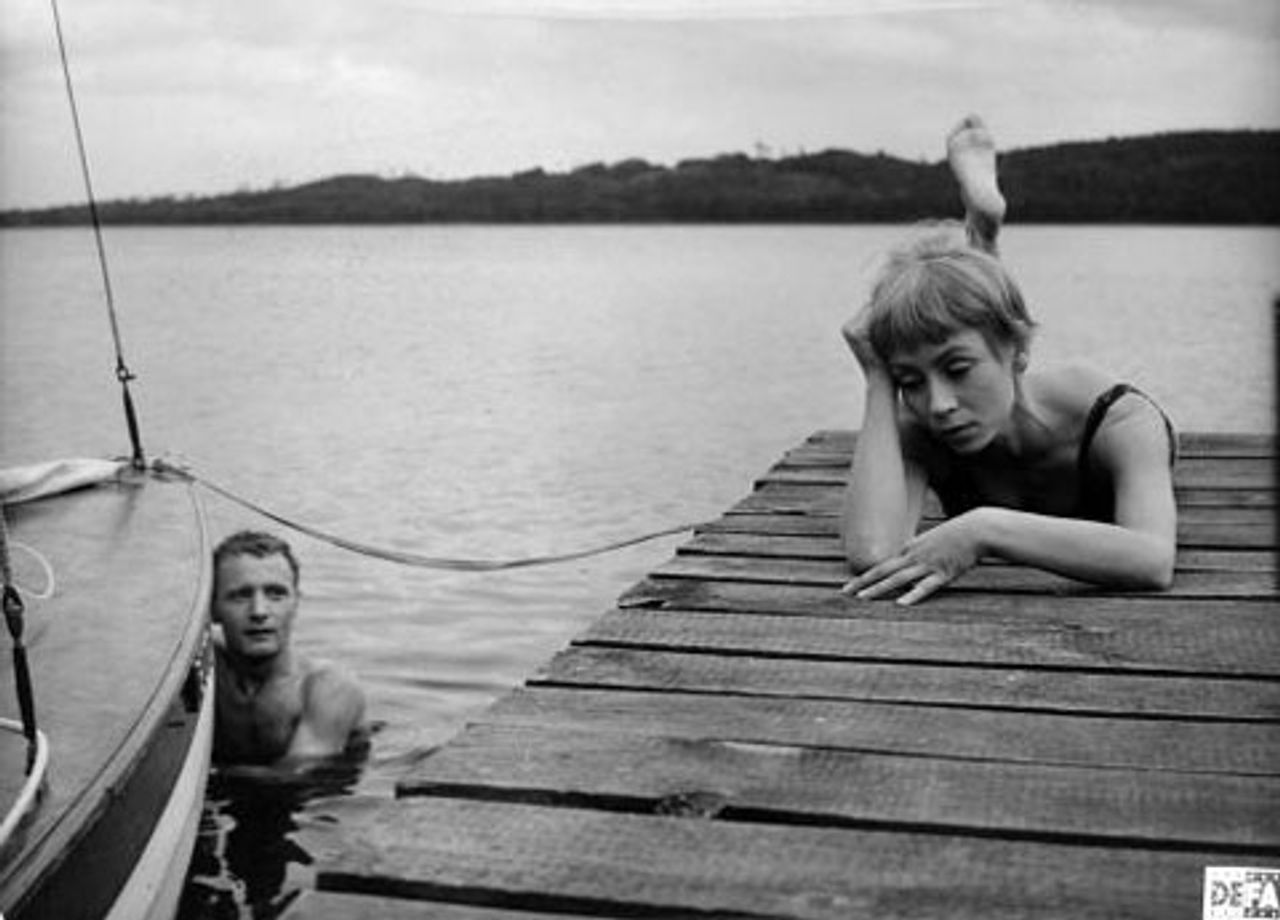 Karla
Karla The 1960s were characterised by growing social tensions and a certain intellectual and cultural ferment on a global scale. Student protest in a number of countries in the middle of the decade signalled a developing social storm. The mass French general strike in 1968 threatened the foundations of European capitalism. In the Stalinist countries, the Czech popular movement during the so-called “Prague Spring” frightened the bureaucracy there and in the USSR. The former Stalinist German Democratic Republic (GDR or East Germany) was no exception in this regard.
The erection of the Berlin Wall in 1961 was met with strikes in the factories. The appeal of the Stalinist Free German Trade Union Federation (FDGB)—“More production for the same pay and in the same time”, for the good of the GDR—created anything but enthusiasm. The introduction of the New Economic System (NÖSPL) of five-year plans, modelled on Soviet policy reforms of the time, was supposed to improve the supply of goods and ease the overall situation.
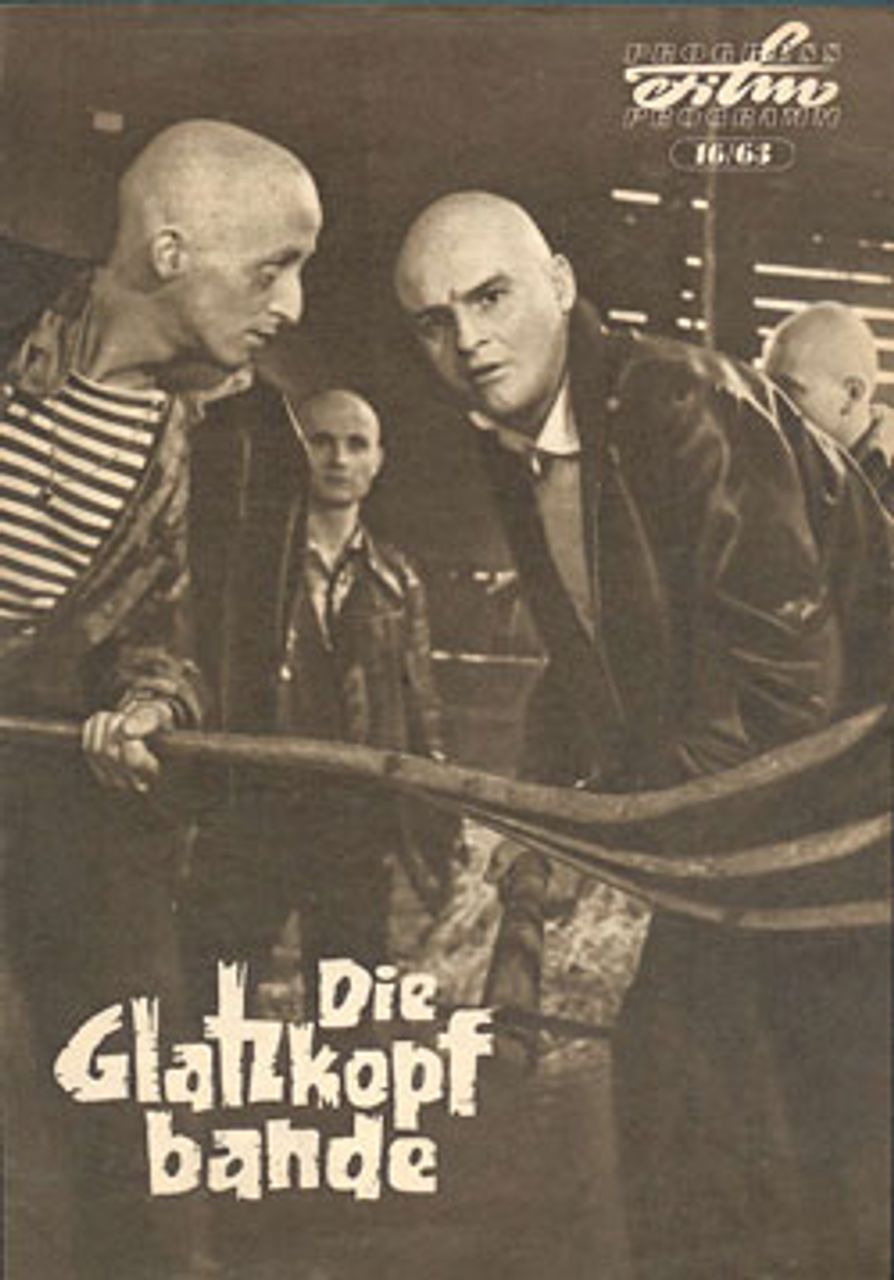 The Baldheaded Gang
The Baldheaded GangHowever, the attempt to increase economic performance by means of certain capitalist incentives led to strikes in the Soviet Union and was dropped. The increased workload also met with opposition in the GDR. Strikes continued in manufacturing plants.
The scale of the unrest was revealed in a series of films, a number of which this article will briefly consider.
The Baldheaded Gang (Die Glatzkopfbande, 1963), directed by Richard Groschopp, brought to the screen the story of young hooligans who terrorise a holiday resort. A scene in Frank Vogel’s Just Don’t Think I’ll Cry (Denk bloß nicht, ich heule, 1965) shows young people beating up an old Communist on the site of a Nazi ruin. The Rabbit is Me (Das Kaninchen bin ich, 1965) by Kurt Maetzig satirises a judge who adapts his legal principles to any political zigzag taken by the ruling Stalinist party, the SED.
A disillusioned former journalist in Herrmann Zschoche’s Karla (1965) tells a young teacher about a similar case of opportunism. During the 1950s, he had witnessed with disgust how journalistic idolators of Joseph Stalin suddenly transformed themselves into angry critics of the despot. Karla would like to teach her pupils to be honest and self-confident. However, her aims are thwarted by the reality of the repressive school system, where restraining “ideologically unsound pupils” takes precedence over everything else.
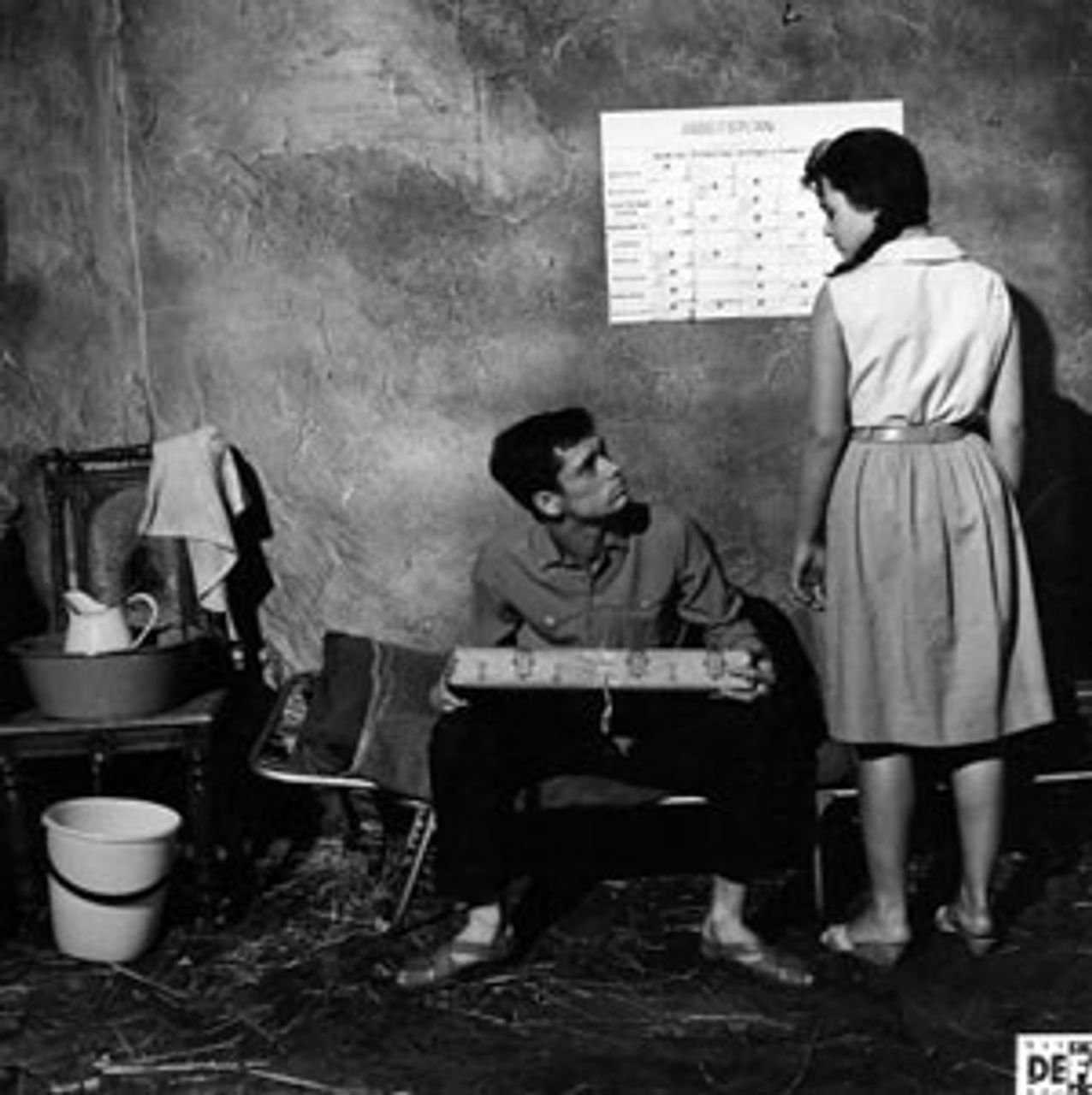 Just Don’t Think I’ll Cry
Just Don’t Think I’ll CryThe ambitious plant manager in Günter Stahnke’s Spring Needs Time (Der Frühling braucht Zeit, 1965) resorts to criminal methods when confronted with production demands from above. A ruthless autocrat, he tyrannises the workers, ignoring the advice of expert staff. He eventually causes an accident. The manager then denounces a senior engineer, demagogically claiming he was a fascist lieutenant until 1945. He also has no qualms about attacking--in the name of the “workers’ and farmers’ government”—the company’s former party secretary, who is well liked by the workforce.
Such economic “head-bangers”, who “created order”, were in fact cultivated by the SED. Armed with numerous powers and privileges, they constituted a major force in the GDR, especially when Stalinist chief Walter Ulbricht and his chief economist Erich Apel began to loosen the state’s monopoly of foreign trade, which until then had guaranteed the primacy of politics over the economy. The later call for a return to capitalism was to receive considerable support from this milieu of SED economic cadres.
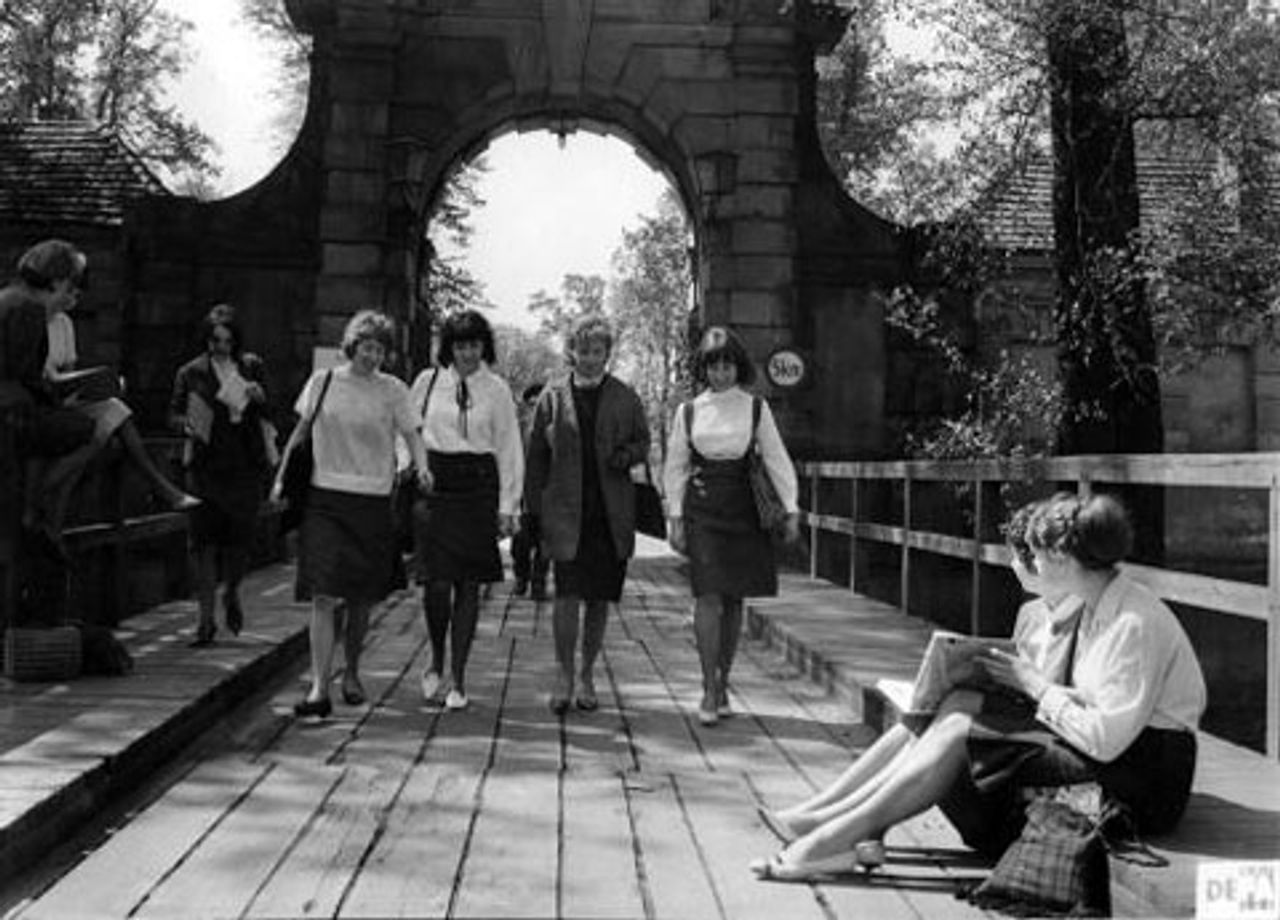 Spring Needs Time
Spring Needs TimeJürgen Böttcher’s Born in ‘45 (Jahrgang ’45, 1965) will be discussed in detail at the end of this article.
The most popular of these films is Frank Beyer’s The Trace of Stones (Spur der Steine, 1966), in which a young carpenter throws a representative of the Stalinist state into the water. The young man, Hannes Balla, calls his crew out on strike, protesting against the chaos on the building site caused by incompetent planning. However, his workmates won’t follow him. The movie was officially declared to have portrayed the SED in such a way that it turned people against joining the party.
The demands made by these films was clear: Away with such judges and party officials!... Away with these economic functionaries and plant directors!... Away with this kind of school system and its officials!
In December 1965, the 11th plenum of the SED central committee decided to launch the second phase of the New Economic System to combat “excesses” in the economy. The new policy included the final subordination of that part of the economy still oriented towards the West to the national requirements of the Soviet Union. In order to defuse the situation in the USSR, the new Kremlin leader Leonid Brezhnev needed more consumer goods—from the GDR.
At the same time, the SED plenum launched an attack on the arts and media. It painted a bleak picture of the country’s youth, accusing artists of fomenting scepticism among adolescents.
“If we want to increase the productivity of our labour and thus raise our living standards, which is something all GDR citizens have an interest in, then we can’t spread nihilistic, despairing and morally degenerate philosophies in literature, film, the theatre, television and magazines”, said head of state Erich Honecker, in his address to the artists.
However, it was precisely the orientation of the GDR economy towards the “principle of attaining the highest economic benefits” that encouraged artists to make their criticisms. The call for greater labour productivity led them to condemn the stifling repression and interference by bureaucrats, who had an SED badge but no expertise and who thereby ultimately damaged “East German socialism”. The artists saw this criticism as a precursor to the comprehensive democratisation of society and culture. This new spirit caused the SED to issue a youth communiqué in 1963, demanding that “tomorrow’s leaders” act more responsibly.
No one in the SED leadership was considering democracy. To be able to harness the critical energy of the young, recalcitrant postwar generation more effectively for national development, the previous, rigid type of control from the time before the Wall was to be replaced by a modern, more subtle method. It was called “employee participation”, but actually meant control through bonding with a work unit.
The concessions, in any case, were by no means to be allowed to unleash social processes and forces that might strengthen the position of the population vis-á-vis the ruling SED. The television programme “Prisma”, first broadcast in March 1963, was accordingly permitted to denounce only a limited number of injustices. The demonisation of Western rock music—a policy whose ineffectiveness was underscored by the “Leipzig Beat Rebellion” of 1965—was gradually abandoned. The subsequent “GDR beat music” with “a socialist face” developed under state control.
Cut off from an understanding of the roots of Stalinism in the great defeats of the working class in the 20th century, East German artists tended to regard conflicts within the SED over concessions to the population as merely conflicts between generations. Already in his poem “To the Old Comrades” in 1962, the young singer-songwriter Wolf Biermann had respectfully asked the old German Communist Party generation to pass power to the young. The immediate reaction was to have him banned from performing.
The stubborn opposition of the “elders”, who everywhere smell the presence of the “class enemy” and distrust young people, is a central issue in films such as Karla, Gerhard Klein’s Berlin Around the Corner (Berlin um die Ecke, 1965[1990])—from the book by Wolfgang Kohlhaase—or The Trace of Stones. The young party secretary, Horrath, is the real hero of the latter film. The rough-and-ready Balla is no friend of the SED, but he is a good worker and honest guy, and so Horrath sees in him a chance for socialism.
The films show the SED in need of sharing their power with the people. They demand the implementation of the official SED slogan: “Work with us, plan to govern with us!” Their apparently naive appeal to honesty and truth encouraged them to ask some painful questions. Why is it stupid to be honest in a socialist society? How morally do those who preach “socialist morality” actually live? Such questions would trouble a party that retained power by concealing and falsifying its own history.
These 1960s’ GDR films underscore how firmly and comprehensively the system of Stalinist falsification and hypocrisy was rooted in that society. The films were immediately banned or dropped by cinemas after a short time. From the point of view of party functionaries, their reputation for honesty and sincerity pushed the artists towards “counterrevolution”.
The Baldheaded Gang was not banned, and became a very successful DEFA (state-owned East German studio) film. It doubtlessly captured the charged mood of the youth to some extent. At the same time, its highlighting of Western influences on the GDR served to legitimise the Wall.
Scepticism and Jürgen Böttcher’s Born in ‘45
Jürgen Böttcher’s love story Born in ‘45, however, was banned before its completion. The film received its world premiere only after Honecker’s departure and the collapse of the GDR. It was the first feature film by Böttcher, who had always wanted to direct features and regarded his documentary work in the GDR at the beginning of his career as a visual education.
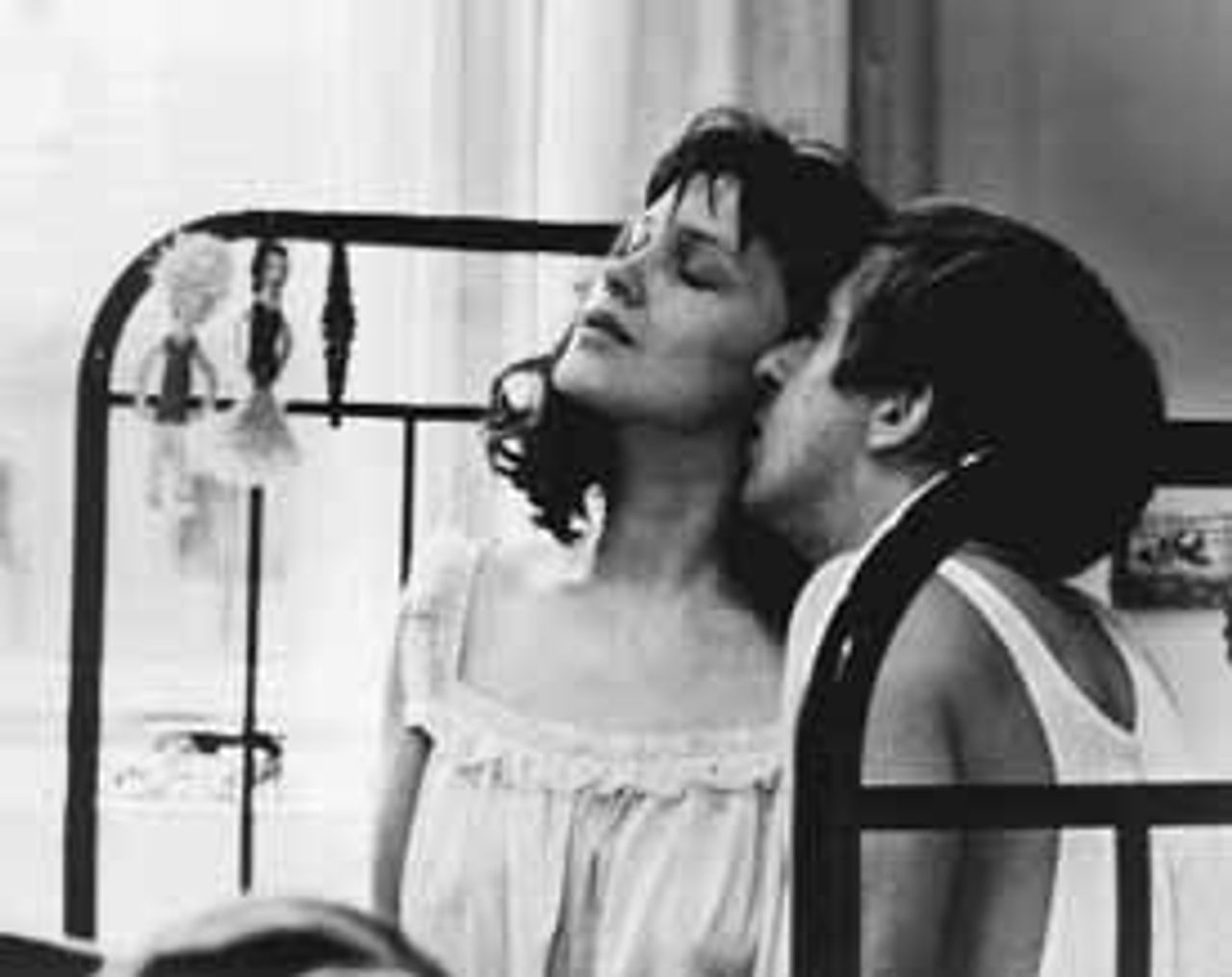 Born in ‘45
Born in ‘45Al (Alfred), a 23 year-old car mechanic, and Li (Lisa), a young nurse, haven’t been married long, but they want to get a divorce—because, as Al puts it, they have reached a dead end. He met Li in his old gang of friends, but feels she has somehow become “old” since she got a job. He wants to return to the good old days and is hostile to anything that has to do with rules and obligations. His parents and grandparents, ordinary workers, have had to spend their lives breaking their backs. Al intends to make a life of his own and enjoy himself in the socialist state.
As the date for the divorce proceedings approaches, Al takes some time off, lying in bed and lounging around, while Li continues going to work. A radio programme reports on the state of agriculture in the GDR. Why does there always have to be all this boring talk? Al turns on some music. He moves out of the shared apartment, bunks down (not entirely legally) in his old gang’s basement, and then goes to live with his mother. He smokes a big cigar, just like his friend Mogul (or is it like Bertolt Brecht?), and whines on his trumpet. When neighbours complain, he jumps to the window and blasts his trumpet at them in the courtyard. He hears old time jazz on a record player and goes looking for his motorbike buddies. Western rock music blares from a portable radio. Despite being on holiday, he goes back to work out of sheer boredom.
Sparse in dialogue, the film derives a poetic vitality from a series of poignant images, especially those capturing Al’s gestures, and on occasion recalls the documentary films Böttcher made later on in his career.
The movie is full of allusions—for example, to a song penned by the social critic-songwriter, Biermann (he was banned from performing), a caged leopard restlessly pacing back and forth behind bars, a hummingbird “hanging” in the air. The plant’s cadre leader intrudes into Al’s private life.
Al’s character is provocative particularly for the party functionaries. It jars with the image of the ideal worker, always striving to fulfil work plans in “socialist competition” and enthusiastically seeking to do even more after his working hours.
“Scepticism” is the scathing criticism levelled against Al. Al is seen as “a deliberately detached, thoughtless and immature young man, who does his work but then spends his spare time unimaginatively and without any initiative … Al’s habits betray a virtually anti-social nature”.
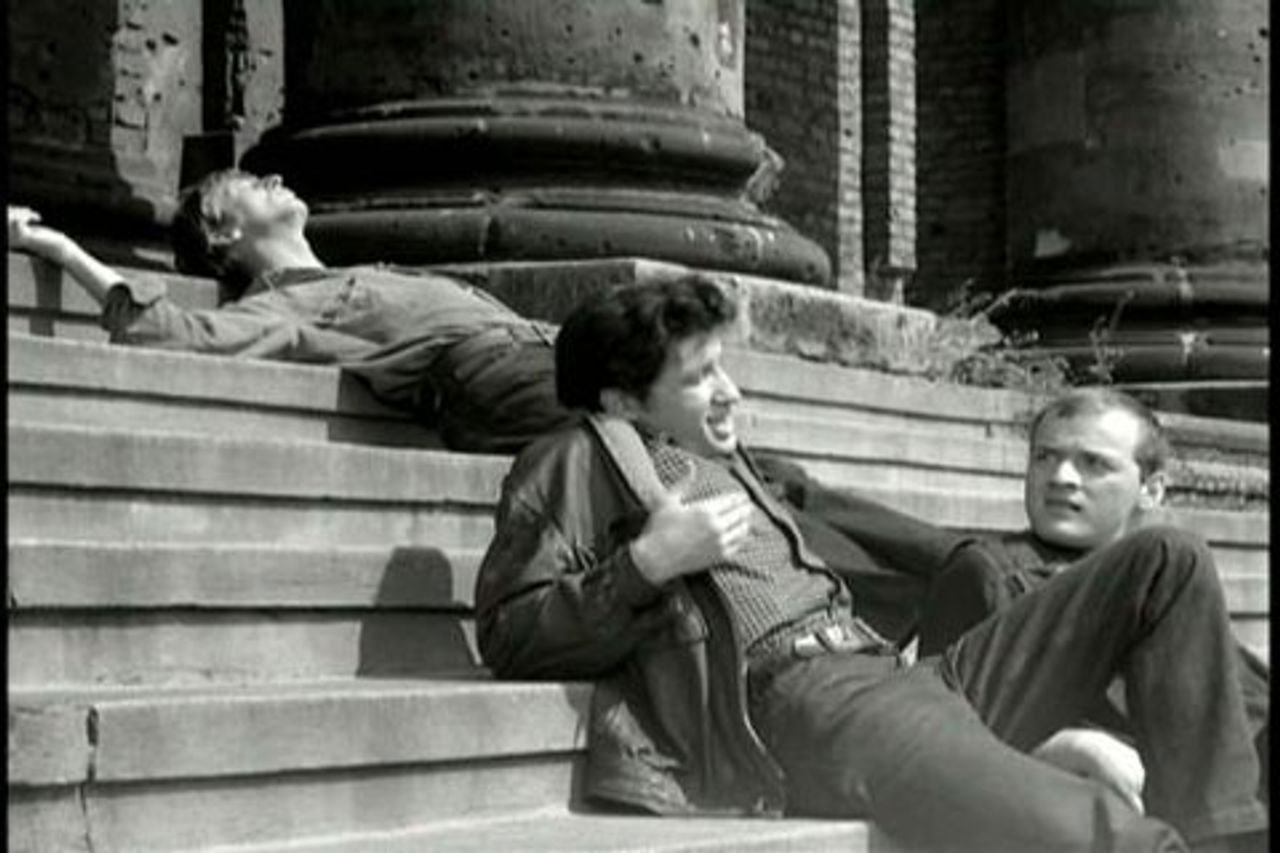 Born in ‘45
Born in ‘45The seemingly non-party retiree, Mogul, employed as a volunteer at the housing commission (where citizens provide help with residence allocation), is Al’s best friend. While breakfasting with Al, Mogul enjoys the sun on the balcony and talks about how rapidly life passes. The viewer gets the feeling that life, the individual, youth are things valued by the 70-year-old. Young people and especially those who do not know what they want, need time, sometimes a great deal of time. The rhythm of the film is also provocatively slow.
Böttcher’s film evokes tender affection for adolescents, a feeling for the fragility of their emotions, such as one sometimes finds in the films of Vittorio De Sica, Luchino Visconti and other Italian neo-realists. Born in ‘45 is a universal plea for time for personal development and against the stupid and arbitrary division of people into the ‘useful’ and the ‘useless’. This makes it still relevant today.
It is a shame that—apart from The Trace of Stones—the banned GDR films of that era (not all of them could be considered here) are hardly ever screened in Germany nowadays, or anywhere else. Their urgency and commitment are impressive, as are their efforts to address real conflicts. The films’ stubborn, illusory hope of reforming the SED has something desperate and heroic about it.
When will Jürgen Böttcher make his second feature film? One thing seems certain. Time is of no importance to him.
